A Savannah Poet
In 2016, Jason K. Friedman, a fiction writer from Savannah, Georgia, then living in San Francisco, decided to buy an apartment in an old townhouse in the historic district of his native city. He was drawn in by the name given for the building—the Solomon Cohen townhouse. Not many of the celebrated historic homes of Savannah carry Jewish names. The apartment seemed like a solid investment, since he and his husband could rent it out to tourists. From the West Coast, they put in a bid, sight unseen.
When Friedman first visited his new property, he opened a kitchen drawer and found a document with details of Cohen’s colorful biography—talented lawyer, founder and director of railroads and banks, influential Georgia politico and reluctant secessionist, real-estate impresario who built the townhouse a decade after the end of the Civil War. Friedman became particularly fascinated, however, by Solomon’s only son, Gratz, the first Jewish student at the University of Virginia, a sensitive poet, who was apparently gay. After years of avoiding enlistment in the Confederate Army on account of a debilitating foot injury, Gratz finally leapt into the fray only to die in battle just weeks before Appomattox. Friedman decided to dig up everything he could about the brief life of Gratz Cohen, an intriguing and impressive young man, confused by his own emotions and overwhelmed by the enormity of the war.
Liberty Street is an unusual book. (It expands on an essay Friedman wrote for Moment Magazine a few years ago.) Though published by the University of South Carolina Press, the author is not an academic, and it’s not a scholarly text but rather a combination of memoir, travelogue, and amateur historical exhumation. Wherever the record comes up short, Friedman glides into a more novelistic mode. These transitions can be jarring—and the absence of citations or an index is sometimes frustrating—but the brazenly convention-defying mixture ends up serving the story well.
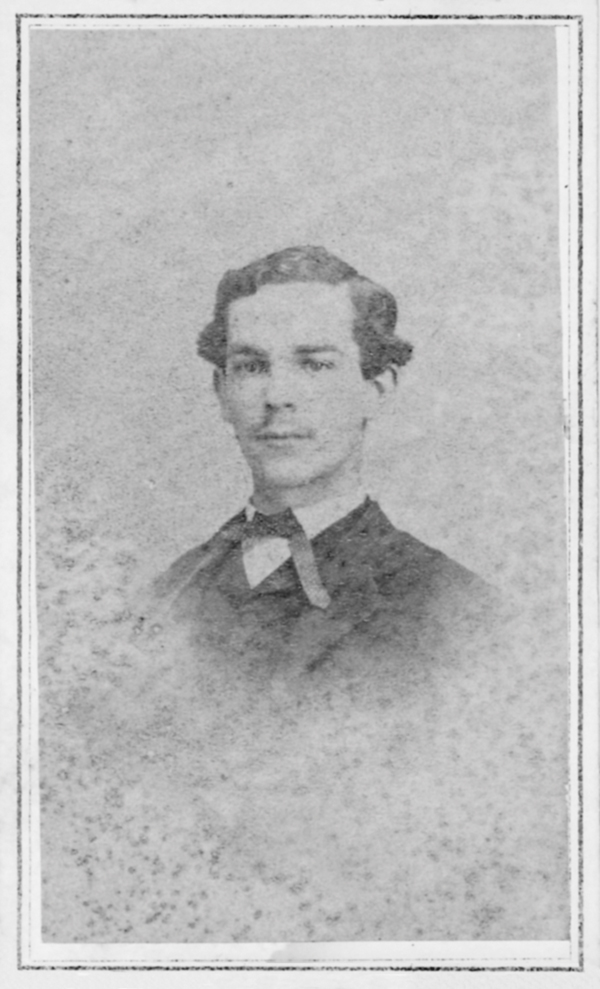
Digging through Gratz Cohen’s letters, journals, and poetry, as well as obituaries and other documents that relate to him, Friedman comes up with some fairly astonishing finds. Himself a gay Jewish son of Savannah with a relationship with his own father as complicated as Gratz’s with his—“the pragmatic businessman father and the romantic idealist son”—the author comes to see himself in his subject and wrestles with the complications that that identification entails. Touring various archives and museums around the South that have some connection to Cohen, Friedman sometimes introduces himself as a relative. The falsehood seems easier to explain than the reality and in some sense, perhaps, is true. “This was a house that came with a story,” Friedman writes at the beginning of his search, “one that was also my own.”
From his earliest years, Gratz was understood to be a special boy, a tenderhearted child who cried at the death of a bird and always perceived some kind of peculiar difference separating him from his playmates—and from his gruff, business-minded father, who had helped modernize and industrialize formerly ramshackle Savannah. Among many other roles, Solomon Cohen served as president of Mickve Israel, the third oldest synagogue in the United States, where he vigorously defended traditional ritual and dogma from Reform innovation. Isaac Leeser, the influential Orthodox editor and spiritual leader, officiated at his marriage. The father’s traditionalism was only one of several sources of tension with his son, who came to believe, with many other Jews of his generation, especially in the South, that Judaism had to be updated and refined to speak to the concerns of the present. “We are in need of a Luther to thunder against the lifeless forms of the synagogue,” Gratz wrote. “We have a spiritual want that must be satisfied by outward rituals suited to the age in which we live.”
It’s unclear, in Friedman’s telling, whether Gratz read Leeser’s Occident, Isaac Mayer Wise’s Reform-minded Israelite, or other contemporary American Jewish writers and periodicals. As a child he attended Hebrew Sunday school, an American institution founded by Rebecca Gratz, the illustrious aunt on his mother’s side whose name he shared. The centrality of Judaism in some of Gratz’s writings suggests he may indeed have followed debates over change and tradition, religion and modernity, even if his own early contributions to such debates were vague and unremarkable. He was far from the only nineteenth-century Jew to call for a reformation. However, Friedman also tells us almost offhandedly that “Jewish spirituality was the subject of the longest poem Gratz ever wrote,” comprising the final thirteen pages of his journal—although he gives us only seven lines of it. (Liberty Street could have been enriched by appending samples of Gratz’s writings that do survive or posting them on the publisher’s website)
Friedman pays close attention to how the Cohens’ Jewishness informed the strategies both father and son adopted to get by in an only half-welcoming world. A Georgia delegate at the Democratic National Conventions of 1852 and 1860, Solomon Cohen got in trouble both times for being insufficiently proslavery. Friedman notes that although the elder Cohen felt fiercely attached to “the region where his immigrant grandfather was able to open a shop and found a synagogue, where his father became a mayor and bank director, the place where the men of his family finally claimed their rights to live as they saw fit,” he nonetheless had to constantly prove himself to the gentile Southern elite. After refusing to walk out of the 1860 convention in Charleston, as more hard-core delegates did to protest the nomination of Stephen Douglas for the presidency, Cohen was made to feel, Friedman writes, like “an insider on the verge of being cast out.”
Coming of age in one of the larger Southern towns on the eve of the Civil War, Gratz Cohen would have encountered the brutal reality of chattel slavery every day. Black people were auctioned off not far from his home, and at least eight slaves served the family’s every domestic need (his father owned twelve others whom he hired out). Though not himself a big-time planter—few Jews were—Solomon Cohen was an outspoken defender of the institution, both before and after the war. He wrote to Rebecca Gratz:
Our slaves are counted by millions, & their value by hundreds of millions, and the system is interwoven into the nerves, and sinews, and arteries, and life blood of our social and political organization. . . . How then can it be eradicated without inflicting death on us and desolation on our homes? The blotting of such a system, the blotting out of such an amount of labor and capital, would convulse the world.
He wasn’t wrong, of course, and Southern Jewish men like Cohen may have thought they had even more to worry about than their neighbors in the event of such a rupture. As Bertram W. Korn and others have long observed, it undoubtedly helped Southern Jews fit in that there was already a racially defined underclass in the region even more marginalized than they were.
Gratz Cohen seems to have known at least one member of that class quite intimately. In the summer of 1861, Gratz volunteered for service at Fort Pulaski, a rundown old island garrison guarding the mouth of the Savannah River. The war was still far off and seemed likely to end quickly. It was an idyllic time for the sixteen-year-old, who reported being tended to by the older soldiers and officers—“almost as much petted as ‘la fille du regiment,’” alluding to Donizetti’s 1840 opera about a French girl raised by a group of soldiers.
He wrote his mother, asking for packages of sponge cake, gumdrops, newspapers, a piece of lamb. Best of all, he had a companion: Louis, an enslaved man who stayed by Gratz’s side during his months of playing at war. A short time later, however, Louis ran away, and Gratz fell into despair, recalling their time together as “a little romance of excitement, of much pleasure.” Writing about their relationship, he went on:
Its recollection is mingled with so much pain and can never be recalled without a sigh. Louis. Your name has stamped its self on my Life. In the doctrine of Counterparts my poor ebony Idol, you were mine and every event of that bright little life of mine last winter had entwined you with it.
Friedman finds this entry in Gratz’s diary, housed at the Georgia Historical Society in Savannah. When he first opens the volume, two loose pages come fluttering out. One has a poem about a missing “servant”:
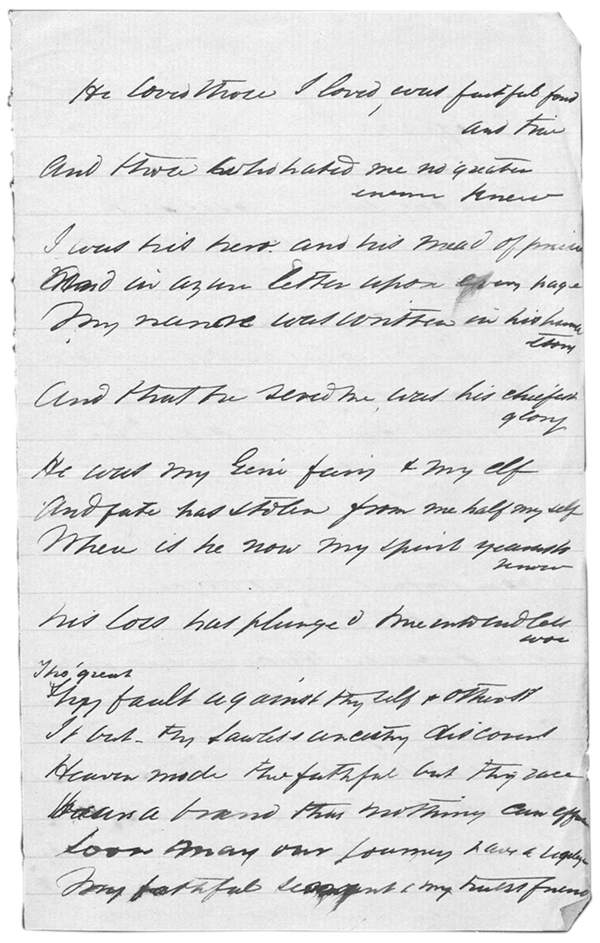
He was my Geni fairy & my elf
And fate has stolen from me half my self
Where is he now my spirit yearns to know
His loss has plunged me into endless woe
Louis’s attempted escape suggests he was likely not as smitten as his master’s son, though, of course, we can’t know. He managed to stay free for three months before being captured and imprisoned at Solomon Cohen’s expense. Friedman speculates, with all appropriate disclaimers, that after his stint in jail, Louis may have found his way to a Union Army camp and offered his services as a scout or, eventually, a soldier.
Gratz did everything he could to avoid the fighting. After his risk-free Fort Pulaski sojourn, he spent much of the war at the University of Virginia, where, despite founder Thomas Jefferson’s wish that the college welcome the sons of “that injured sect,” no Jews had enrolled before Gratz’s arrival in the fall of 1862. (An eccentric Jewish math professor hired in 1841 lasted less than six months before reportedly stabbing a student for insulting him during class.) At the university, Gratz read the classics—Friedman notes that he brought seven boxes of books with him to college, including Gibbon’s Decline and Fall and a set of translated Greek and Roman texts—studied French, Latin, and German; considered a career in medicine; and then turned to law. But the war was distracting. “My mind is completely unhinged,” he wrote his father, “indeed every one at the University is in the same condition.” Whenever a detachment of Union troops approached Charlottesville, Gratz ventured forth with some friends in a pantomime of martial readiness, then returned to the dorms when the threat had passed.
Patiently indulging Gratz’s medical needs and literary predilections, Solomon used his contacts to help his son avoid enlistment and even lined up a publisher for a novel Gratz wrote about a “high-toned, intellectual Jewess,” as Solomon later recalled (the manuscript was apparently lost when large parts of Columbia, South Carolina, burned in early 1865, as the city fell to General Sherman). Friedman convincingly shows how tortured Gratz felt by his own avoidance of the war. “My chief ambition and my most ardent prayer is to strike at least one blow in this glorious cause,” the seventeen-year-old wrote to his mother. “I shall never forgive myself if the strife ends without my doing so.” To Friedman, it’s a telling construction, showing that “it’s his own war he’s trying to win, and what’s really at stake is his own masculinity.”
Eventually, Gratz did find his way into battle, volunteering to defend his hometown as Sherman’s army closed in on Savannah. Friedman parses out the differing accounts of how Gratz met his end and personally traveled the route the young recruit took from Savannah, which surrendered to Sherman’s army at the end of 1864 (thereby preserving the picturesque historic district), to the North Carolina farm where he would be killed in March—almost certainly, Friedman discovers, in a case of friendly fire.
Friedman tries to imagine what twenty-year-old Gratz might have been thinking in his final moments alive:
Did he breathe deeply of the fresh air perfumed by pine and peach trees in blossom, or pause to listen to the chirp and warble of the birds? He certainly heard the din of the battle already raging just to the south, and he must have felt this was the big one, the decisive conflict that would end the war and that he was determined not to miss.
Solomon never recovered from his son’s sudden, senseless death. As Friedman puts it, in a sentence that neatly encapsulates his idiosyncratic style:
This authoritarian father, merciless legal adversary, unflinching states rights advocate, poker-faced businessman, stern synagogue president, contemptuous dismisser of fools, defiant defender of slavery—Gratz’s death cracks him open like an egg, and all the gooey stuff runs out.
Liberty Street is not exactly a dispassionate history. Friedman describes a portrait of Gratz painted after his death in which the handsome young man is “especially beautiful, the play of masculine and feminine definitively tipped toward the latter and every trace of the Semitic gone. . . . His nostrils flare sexily.” Some of his judgments strain the evidentiary record. He wonders, for instance, whether a fellow soldier who accompanied Gratz into battle and carried his body off the field later married Belle Cohen—“a look-alike for her brother”—because he “knew it would be a way to gaze on his dead friend’s face for the rest of his life.” One hates to be prissy, but although such speculation would not be out of place in fiction, it pushes the bounds of propriety in a work of history, however convention-defying.
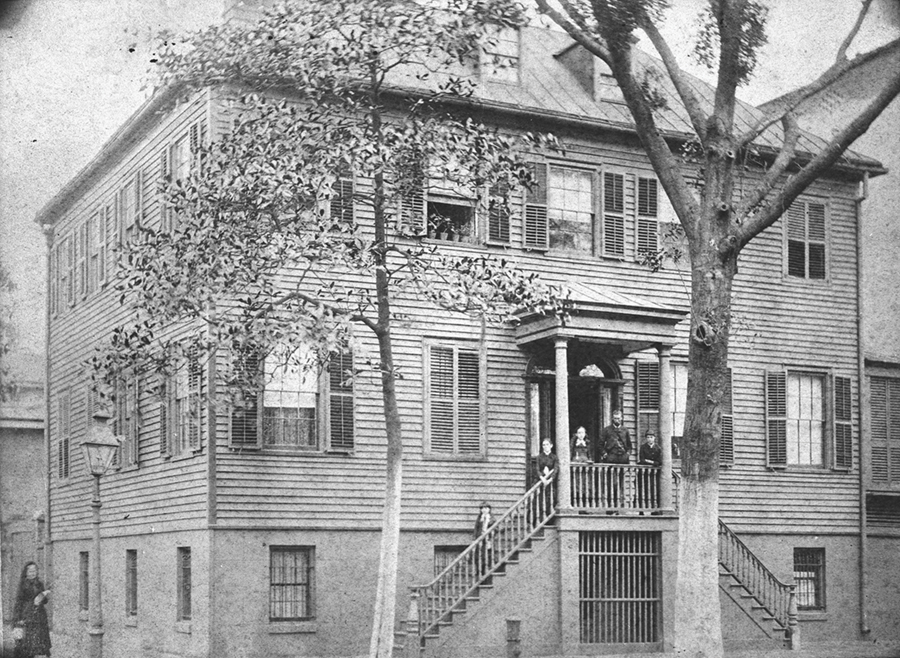
Yet it’s not clear that any other form, or any one of the several forms this book deploys, would quite do the story justice. The unusual degree of affinity between author and subject makes Liberty Street a more interesting book. “Gratz’s journal entries are encoded in their way,” Friedman writes of some particularly insinuating passages, “but I feel I can read them.” He admits being moved to tears by a passage in which Gratz seems to wrestle with the contradiction between his faith in God and his sense of having “in an hour of Phrenesy . . . called down a curse” on his own head. To Friedman, the entry shows Gratz accepting the prospect of his own damnation if it means he can “feel free just to be himself.”
Intricate and well wrought, like the iron balconies of old Savannah townhouses, Liberty Street is a welcome contribution to the literature on the varieties of Jewish experience in the nineteenth-
century American South as well as proof of the benefits of attending carefully to the shadows the past casts on the present. Before we are too far along in the book, the author’s fascination becomes our own.
Gratz Cohen left an unshakable sense among those who knew him that a person of great promise had been lost. Friedman tantalizingly suggests that a mature Gratz might have found a way beyond the racialist thinking of his Southern boyhood. In a poem he wrote during the war, he invoked a “God alike of White & Black” and envisioned a world in which “the oppressor and / Oppressed shall cease & all be equal and men . . . drawn together, race with race / Commingled.”
Suggested Reading
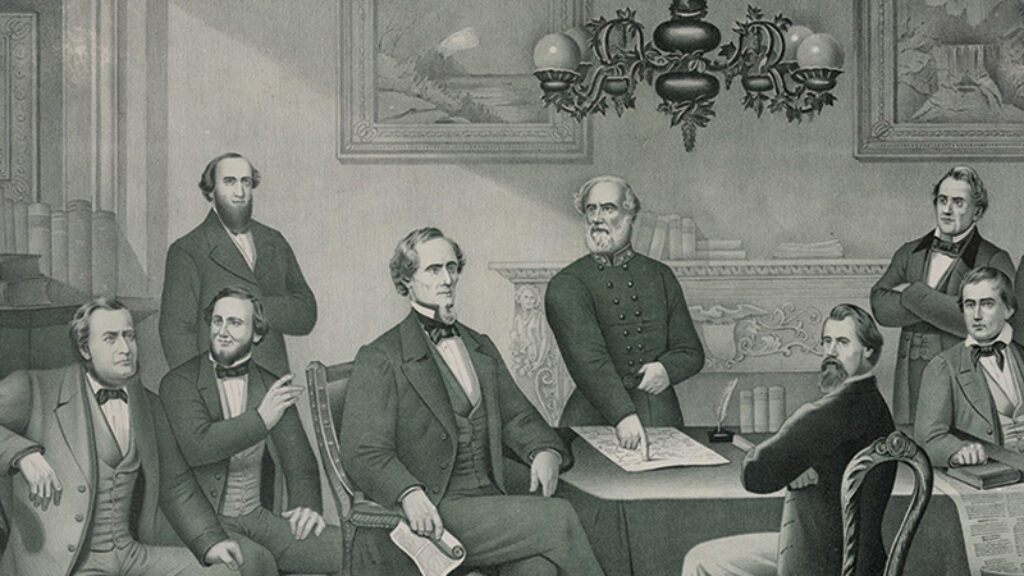
An Israelite with Egyptian Principles
Judah Benjamin was a brilliant New Orleans lawyer who became the most important cabinet member in Jefferson Davis’s Confederate government. He was, Senator Benjamin Wade correctly declared, one of the “Israelites with Egyptian principles.”
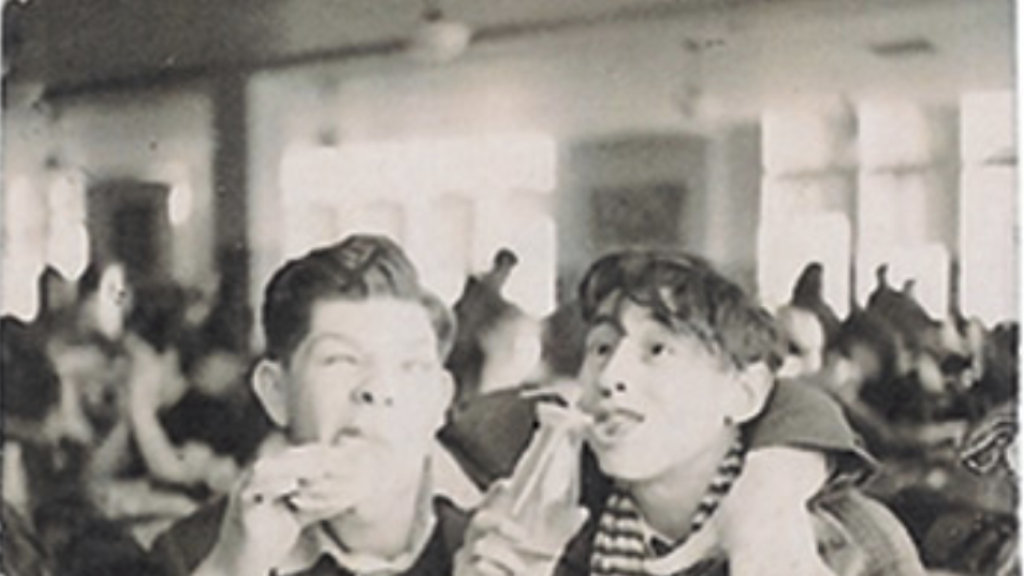
What . . . Him Worry?
How did Abraham Jaffee, raised in the shtetl of Zarasai, became one of MAD magazine's most prolific and recognizable cartoonists?
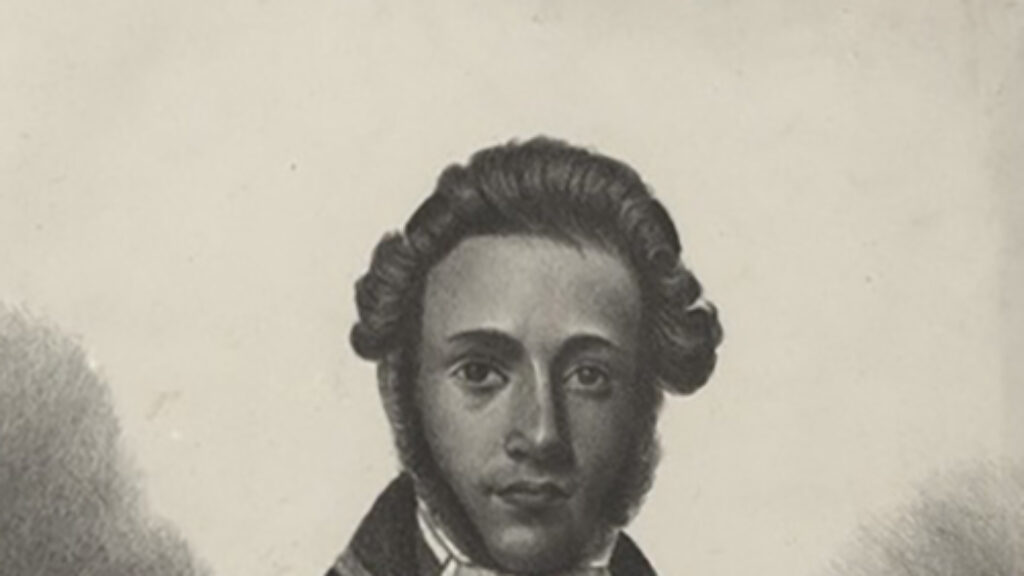
Samson Raphael Hirsch’s Attack on Liberal Christian Bigotry and American Slavery
In 1841, Rabbi Samson Raphael Hirsch leapt into a raging debate between liberal and orthodox Protestants, declaring, “It is high time for the non-Jewish thinker to set aside convenient pre-judgements and to begin to construct Christendom without having to destroy Judaism.”

Wartime Diary
Since October, in Gaza, hundreds of thousands of people are on the move in the rain, mud, and fire. They go from one space that is not home to another space that is not home; none of them safe. Where will they shelter? To what can they return?
Comments
You must log in to comment Log In